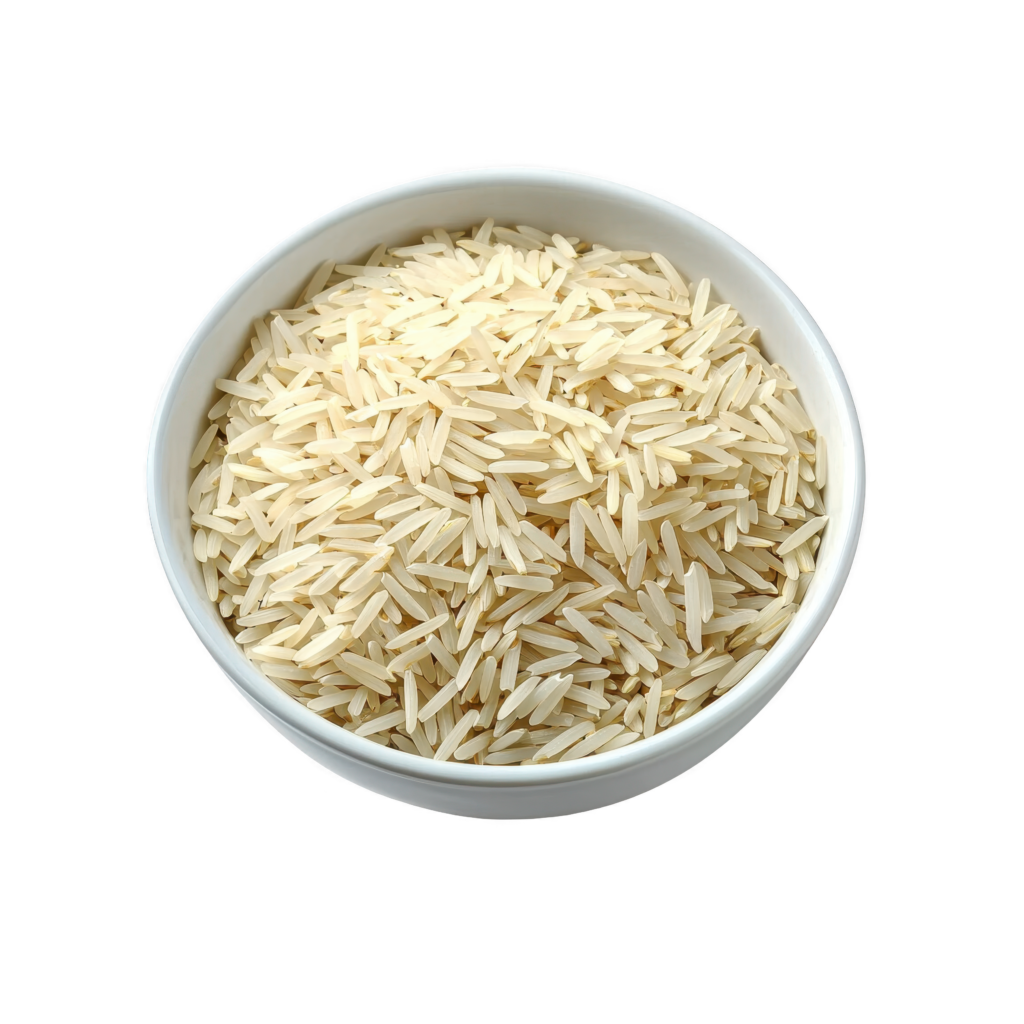
Basmati rice is a long-grain, aromatic rice variety traditionally grown in the Indian subcontinent, particularly in India and Pakistan. The word “basmati” comes from the Sanskrit word meaning “fragrant,” which reflects its signature nutty aroma and flavor.
Basmati rice is known for its distinctively long, slender grains that remain separate and fluffy when cooked. It is commonly used in dishes like biryani, pilaf, and other South Asian and Middle Eastern cuisines. There are both white and brown varieties of basmati rice, with brown basmati retaining more fiber and nutrients.
In addition to its culinary appeal, basmati rice has a lower glycemic index compared to many other rice types, making it a preferred choice for people managing blood sugar levels. It’s also naturally gluten-free and easy to digest.
approximate nutritional value of uncooked white basmati rice per 100 grams:
| Nutrient | Amount (per 100g) |
|---|---|
| Energy | 365 kcal |
| Protein | 7.5 g |
| Total Fat | 0.7 g |
| – Saturated Fat | 0.1 g |
| Carbohydrates | 78.6 g |
| – Sugars | 0.1 g |
| Dietary Fiber | 2.2 g |
| Calcium | 23 mg |
| Iron | 1.1 mg |
| Magnesium | 25 mg |
| Phosphorus | 115 mg |
| Potassium | 115 mg |
| Sodium | 1 mg |
| Vitamin B6 | 0.1 mg |
| Folate (B9) | 58 µg |
Basmati rice offers several health benefits, especially when consumed in moderation as part of a balanced diet:
- Low to Medium Glycemic Index (GI): Basmati rice, especially brown basmati, has a lower GI than most other rice varieties, making it a better option for managing blood sugar levels.
- Supports Digestive Health: It is easy to digest and low in fat, making it gentle on the stomach. Brown basmati rice is also high in fiber, which aids digestion and prevents constipation.
- Provides Sustained Energy: Rich in complex carbohydrates, it provides long-lasting energy without rapid spikes in blood sugar.
- Gluten-Free: Naturally gluten-free, basmati rice is a safe grain option for people with celiac disease or gluten sensitivity.
- Heart-Friendly (Brown Basmati): Brown basmati rice contains healthy nutrients like magnesium and potassium that support heart health.
- Weight Management: Its fiber content (especially in the brown variety) promotes satiety, which can help with portion control and weight management.
- Rich in B-Vitamins: Basmati rice contains important B vitamins like B1 (thiamine) and folate, which support energy metabolism and brain function.
